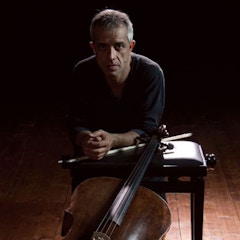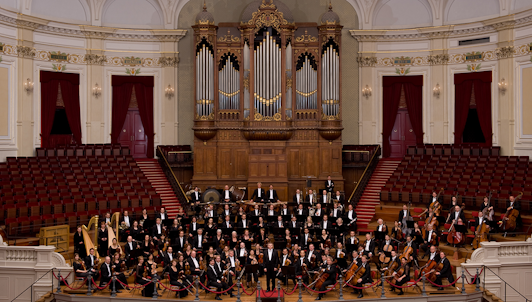Born in Palermo into a family of musicians, Giovanni Sollima studied cello with Giovanni Perriera and Antonio Janigro and composition with his father Eliodoro Sollima and Milko Kelemen. He began an international career as cellist, collaborating among others with Claudio Abbado, Giuseppe Sinopoli, Jörg Demus, Martha Argerich, Katia and Marielle Labèque, Bruno Canino, DJ Scanner, Victoria Mullova, Riccardo Muti, Ruggero Raimondi, Patti Smith, Philip Glass and Yo-Yo Ma.
Sollima performed in prestigious places, but also in alternative venues: Carnegie Hall, BAM, Alice Tully Hall, Knitting Factory in New York, Wigmore and Queen Elizabeth Hall in London, Salle Gaveau in Paris, Musicgebouw in Amsterdam, Tchaikovsky Hall in Moscow, Kunstfest in Weimar, La Scala in Milan, Santa Cecilia in Rome, Festivals of Kronberg, Kuopio, Istanbul, Tokyo, Venice, Ravenna, Spoleto, Shanghai (Expo 2010).
As composer, Sollima has been captivated by every kind of languages and has thought to create new blends among the most diverse genres by combining elements of classical and rock music, as well as of music of all the Mediterranean area. He composes for acoustic and electric instruments, and others invented by himself or created for him.
Besides he composed music for directors and choreographers, such as Peter Greenaway, Bob Wilson, Peter Stein, John Turturro, Karole Armitage and Carolyn Carlson. With the videographer Lasse Gjertsen he realized Daydream.
Among the CDs worth mentioning there are Aquilarco, Works and We Were Trees recorded in 2008 together with the cellist Monika Leskovar and the Solistenensemble Kaleidoscop from Berlin.
In September 2009 he performed in Budapest, Linz and Koln, his new cello concerto Folktales commissioned by the Budapest Festival Orchestra.
Sollima teaches at the Romanini Foundation in Brescia and starting 2010 he will be teaching at the Accademia of Santa Cecilia in Rome where he was appointed Member of the Academy, the highest honour in Italy for a musician.
He plays a cello by Francesco Ruggeri (Cremona, 1679).


